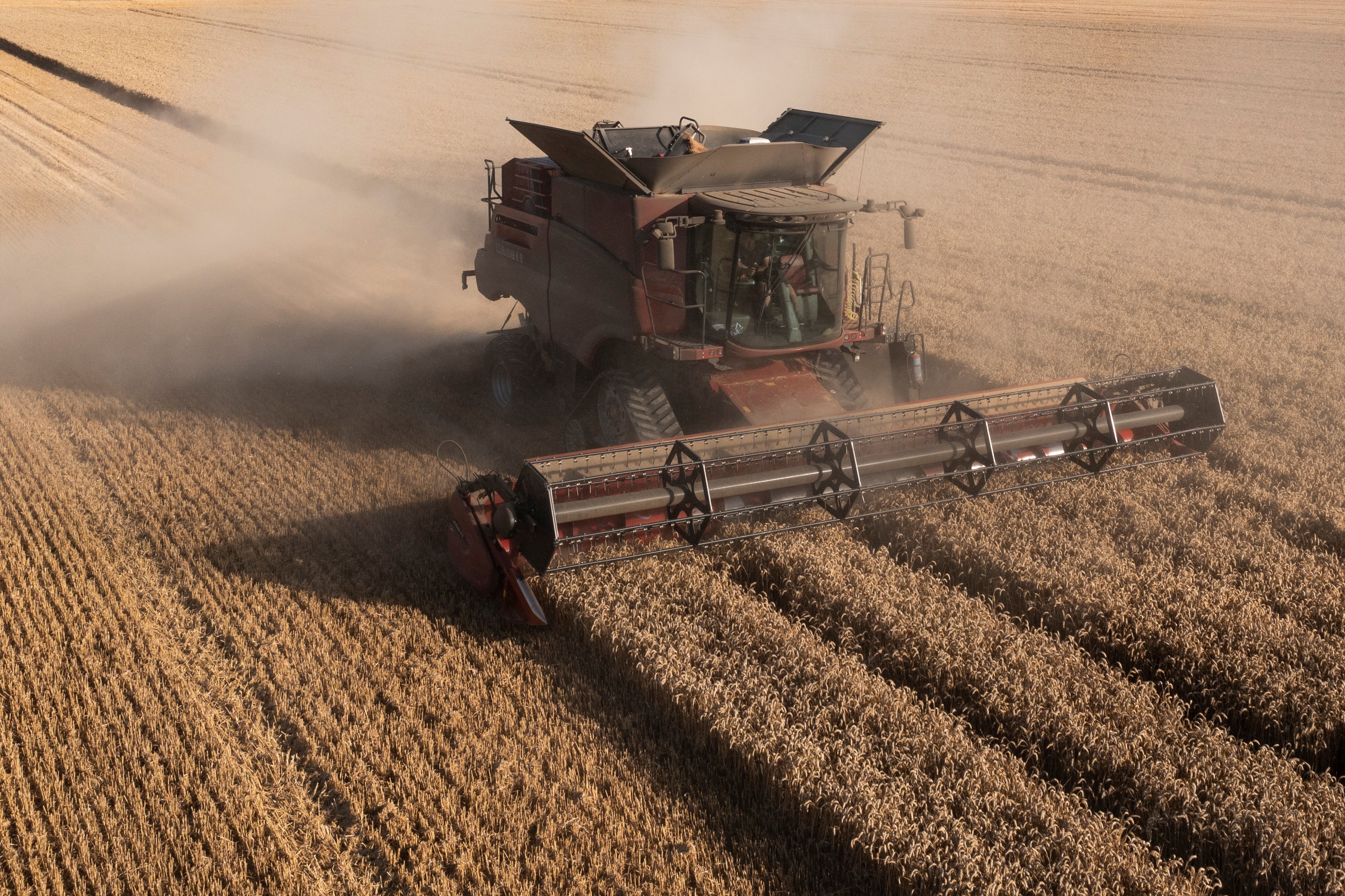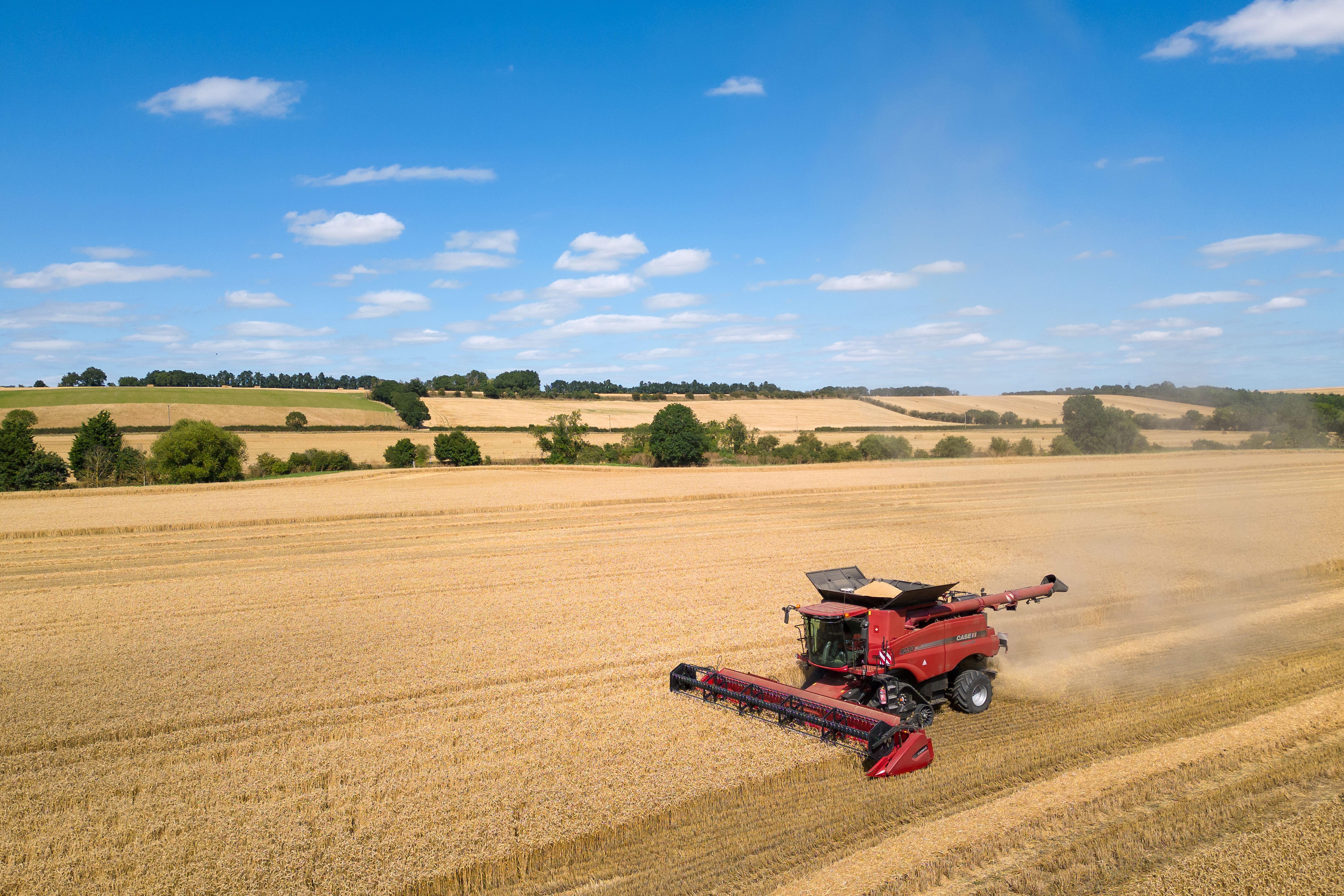Farmers’ harvest in limbo after UK endures driest spring in nearly 70 years
The Energy and Climate Intelligence Unit (ECIU) think tank warns that climate change is already having a ‘devastating’ impact on farmers

British farmers are bracing for potentially disastrous harvests following the hottest spring on record, compounded by the driest conditions seen in decades, new analysis reveals.
The Energy and Climate Intelligence Unit (ECIU) warns that climate change is already having a "devastating" impact on farmers, food security and shopping bills, and that recent weather extremes will negatively impact the upcoming harvest.
The warning comes as concerns mount that the Government will cut funding for sustainable farming in the upcoming spending review.
Farmers and environmentalists warn that such cuts would undermine efforts to restore nature, build resilience to climate shocks, and support rural communities.
Martin Lines, chief executive of the Nature Friendly Farming Network, said this year’s arable harvest was "on a knife edge" and stressed the need for funding to build resilience.
Experts say that nature-friendly farming measures, such as promoting healthy soils and boosting natural predators of crop pests, can significantly enhance agriculture's resilience to climate extremes.

Mr Lines, who farms in Cambridgeshire, said: “Months of dry weather have left my crops stressed, with their yield potential now capped even if we get a good bit of rain.
“This is what farming in a changing climate looks like.”
And he said: “It’s wreaking havoc with my ability to plan and many farmers are now facing yet more financial losses this harvest, just as support for nature-friendly farming is being called into question.
“Nature-friendly farming is the backbone of rural resilience. Cutting funding now won’t save money; it will cost us all in the long run,” he warned.
The UK has experienced its hottest spring in records dating back to the 19th century, and its driest in more than 50 years with rainfall at just 40 per cent of average levels.
England suffered the driest three months from March to May in more than 100 years, Met Office figures show.
The north-west of England is already in drought, and the Environment Agency has warned of the risk of more widespread drought without sustained rainfall.
Analysis from ECIU estimates the production of the main arable crops – wheat, barley, oats and oilseed rape – could once again be near all-time lows, following the third-worst harvest on record last year after the extreme rainfall in winter 2023/2024.
The assessment draws on the most recent crop development survey from the Agriculture and Horticulture Development Board (AHDB), which identified a major decline in crop conditions due to the dry spring, reducing yield potential despite recent rainfall.
It looks at three scenarios, reflecting what might happen with rainfall in the coming weeks.
If crop condition is maintained at current levels, yields would be in line with last year, leading to a worse harvest than 2024, due to fewer acres of oilseed rape and spring barley planted outweighing an increase in wheat, and making 2025 the second-worst harvest in records dating back to the 1980s.

If rain helps crop conditions improve and yields recover to the 10-year average, the UK harvest would be the seventh-worst on record, the ECIU estimates.
And if crop condition continues to decline and yields are equivalent to 2020 – the worst harvest so far since the detailed records began in 1984 – this year could become the worst harvest on record.
Tom Lancaster, land, food and farming analyst at ECIU, said: “Climate change is already having a devastating impact on UK farming and our collective food security, pushing up shopping bills and leaving many farmers at the end of their tether.
“Although it’s too early to tell what the true impact will be of this record-breaking dry spring, we know enough to conclude that it will have had a negative impact.”
He said scientists were clear warmer springs were a feature of climate change, making the impact of a dry spring more severe, while extreme wet winters were also being fuelled by rising global temperatures.
Many crops were hit by extreme rainfall in England last September and October, just as winter crops should have been drilled, delaying them to the spring and making them more vulnerable to the recent dry, warm weather.
“In this volatile context, the outcome of the spending review next week will be a crucial moment for farming in this country, and whether the Government realises what’s at stake for UK farming and food security in a rapidly changing climate,” Mr Lancaster said.
Join our commenting forum
Join thought-provoking conversations, follow other Independent readers and see their replies
Comments